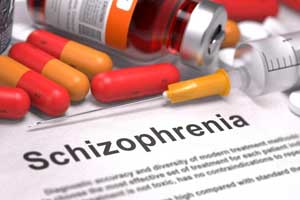- Home
- Editorial
- News
- Practice Guidelines
- Anesthesiology Guidelines
- Cancer Guidelines
- Cardiac Sciences Guidelines
- Critical Care Guidelines
- Dentistry Guidelines
- Dermatology Guidelines
- Diabetes and Endo Guidelines
- Diagnostics Guidelines
- ENT Guidelines
- Featured Practice Guidelines
- Gastroenterology Guidelines
- Geriatrics Guidelines
- Medicine Guidelines
- Nephrology Guidelines
- Neurosciences Guidelines
- Obs and Gynae Guidelines
- Ophthalmology Guidelines
- Orthopaedics Guidelines
- Paediatrics Guidelines
- Psychiatry Guidelines
- Pulmonology Guidelines
- Radiology Guidelines
- Surgery Guidelines
- Urology Guidelines
Bartonella infection presents as sudden-onset adolescent schizophrenia-Case study

Researchers at North Carolina State University describe an adolescent human patient diagnosed with rapid onset schizophrenia who was found instead to have a Bartonella henselae infection.
In a case study published in the Journal of Central Nervous System Disease, an adolescent with sudden onset psychotic behaviour -- diagnosed as schizophrenia -- was seen and treated by numerous specialists and therapists over an 18-month period. All conventional treatments for both psychosis and autoimmune disorders failed. Finally, a physician recognized lesions on the patient's skin that are often associated with Bartonella, and the patient tested positive for the infection. Combination antimicrobial chemotherapy led to full recovery.
This study adds to the growing body of evidence that Bartonella infection can mimic a host of chronic illnesses, including chronic illnesses, and could open up new avenues of research into bacterial or microbial causes of mental disorders.
Bartonella is a bacteria most commonly associated with cat scratch disease, which until recently was thought to be a short-lived (or self-limiting) infection. There are at least 30 different known species of Bartonella, and 13 of those have been found to infect human beings. The ability to find and diagnose Bartonella infection in animals and humans -- it is notorious for "hiding" in the linings of blood vessels -- has led to its identification in patients with a host of chronic illnesses ranging from migraines to seizures to rheumatoid illnesses that the medical community previously hadn't been able to attribute to a specific cause.
"This case is interesting for a number of reasons," says Dr. Ed Breitschwerdt, Melanie S. Steele Distinguished Professor of Internal Medicine at NC State and lead author of the case report. "Beyond suggesting that Bartonella infection itself could contribute to progressive neuropsychiatric disorders like schizophrenia, it raises the question of how often infection may be involved with psychiatric disorders generally.
"Researchers are starting to look at things like infection's role in Alzheimer's disease, for example. Beyond this one case, there's a lot of movement in trying to understand the potential role of viral and bacterial infections in these medically complex diseases. This case gives us proof that there can be a connection, and offers an opportunity for future investigations."
For more details click on the link: DOI: 10.1177/1179573519832014

Disclaimer: This site is primarily intended for healthcare professionals. Any content/information on this website does not replace the advice of medical and/or health professionals and should not be construed as medical/diagnostic advice/endorsement or prescription. Use of this site is subject to our terms of use, privacy policy, advertisement policy. © 2020 Minerva Medical Treatment Pvt Ltd